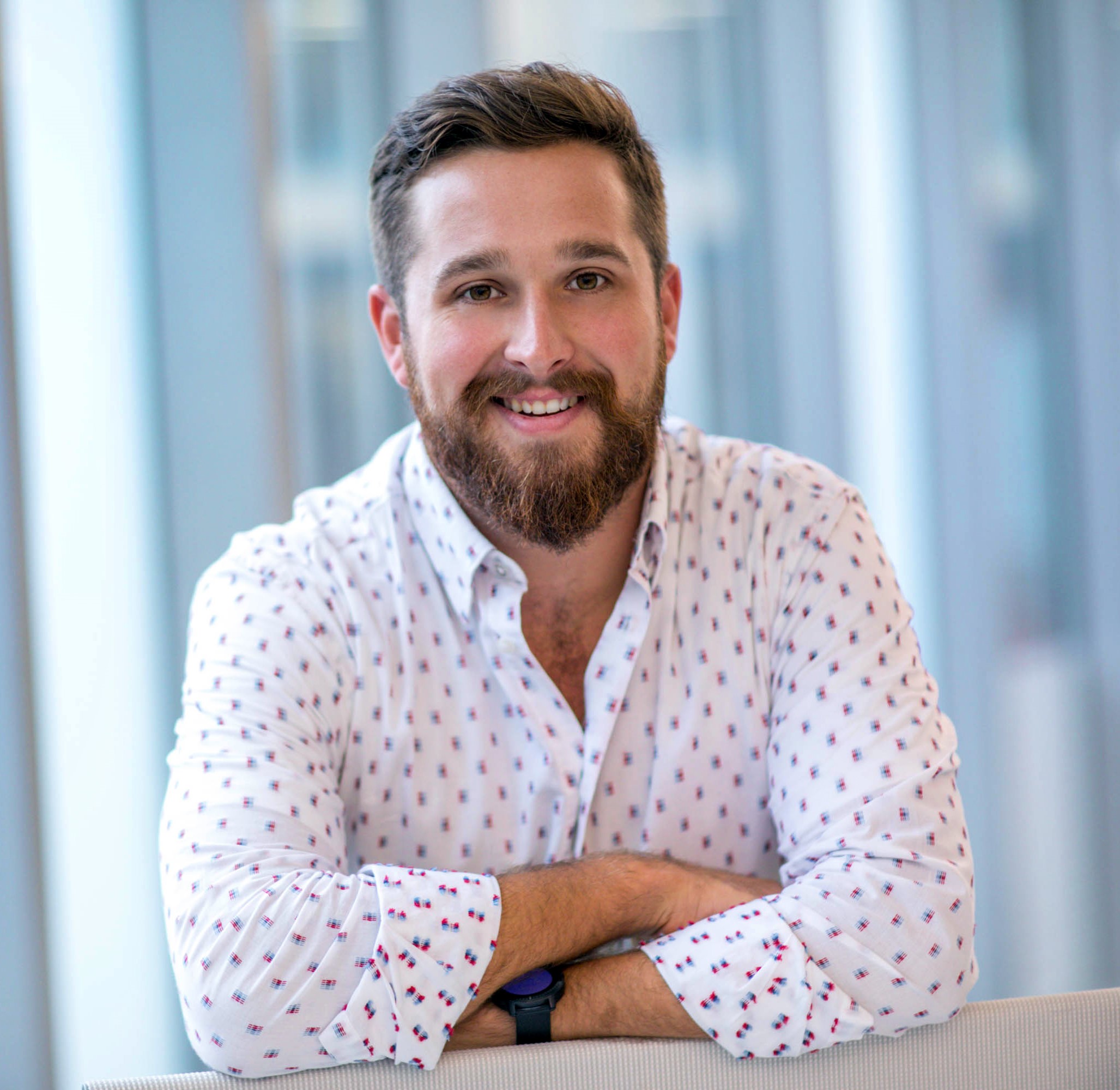
Bristol-Myers Squibb (BMS) recently opened a new cancer research facility in Cambridge that is focused on discovering new treatments for patients who do not respond, or develop a resistance, to existing therapies. In an effort to fill a significant number of scientific roles through the end of 2020, BMS Cambridge will be looking to reach into diverse talent pools that will drive innovation and better reflect the patient community. I spoke with Ryan Diviney, BMS HR Site Lead, about why he is striving to form a highly capable and diverse team, and why he believes this will lead to positive impacts and increase patient outcomes in the field of cancer treatments.
Why do you think that it is essential to see patient centricity through the lens of diversity and inclusion in the biotech workplace?
At our research facility we are trying to understand some of the most challenging questions about cancer: why some patients either never respond or develop a resistance to current IO therapies; and then try and discover new drugs that could get them a positive response. Unfortunately, cancer does not discriminate, so it affects people in all walks of life around the world. Therefore, we want to hire researchers who represent those diverse elements and can bring in their unique perspectives, life experiences, and capabilities, so that we can take those intricacies into consideration when identifying new targeted therapies for cancer patients.
In terms of D&I in cancer research, what are your plans to do things different operationally to be more productive?
In our Cambridge office, we are trying to take the best of what BMS offers globally and combine it with what makes biotechs great. We are taking the resources and massive data sets from years of Immuno-Oncology clinical trials, providing them to a new team that combines both drug discovery and translational medicine capabilities, and enabling them to cross-pollinate and challenge the “normal” ways of approaching these scientific questions to hopefully lead to breakthroughs. In our offices and labs, we are mixing the teams so that they are co-located with colleagues from different departments; tenured BMS next to new hires from academia, university or industry; US nationals with some of the leading minds from around the world. But, it is not good enough to just have all the right pieces of the puzzle. Therefore, we are proactively encouraging our scientists to be bold, creating opportunities for them to interact with some of the leading researchers in the field and ultimately enabling them to bring their authentic selves to work.
Additionally, we are working on building an inclusion committee that will be the interface between our employees in Cambridge and our global People and Business Resource Groups (PBRGs) that bring employees together around a dimension of diversity to help drive business performance.
How did you get the BMS leadership team on board with supporting an intentional D&I recruitment strategy? What was the most challenging aspect?
Luckily for me, this was not much of a challenging battle. Our Cambridge leadership team gets it, and I think that is because we are diverse ourselves. In addition to representing diversity of gender and ethnicity, our leaders bring great diversity in experience. Emma Lees, our Site Lead and Head of Oncology Biology, was brought in last year from a local biotech and also brings with her experience from larger companies on both the east and west coast; Saurabh Saha, Head of Translational Medicine for BMS, has experience leading global organizations and also has VC experience; Michaela Bowden, Head of Translational Research, joined us from a premier academic institution in the area and has worked and lived around the world; Sharon Cload, Head of Molecular Discovery Technologies, was brought into BMS 10 years ago as part of an acquisition of a smaller biotech and has been able to pull through the best of what BMS has to offer.
Through 2020 we will be hiring over 100 scientists across biology, translational research, bioinformatics, genomics and other parts of drug discovery. This is our chance to get it right, and by right, I mean not only bring in great scientists, but also scientists that think, look and act differently. They realize that our best chance at cracking the code of IO resistance is by hiring diverse teams and enabling them to leverage their unique experiences and capabilities in their work here every day.
What is the biggest driver of representing BMS as an inclusive workplace?
My main motivation is to let potential candidates know that this is a place that they can bring their authentic selves and contribute to driving the science that hopefully, will positively impact cancer patients’ lives. We truly believe that if we bring together a diverse team that approaches problems from different angles and leverages unique perspectives to challenge the research and how we work, we will have the best chance of succeeding for patients.
What are some creative ways to proactively source candidates from underrepresented communities?
Since we are so new to Cambridge, this is something that I am proactively working on now, but honestly, I am still in the process of building my network. My hope is to continue building my network, communicating the story of what BMS is building in Kendall square, and hiring some great talent who can validate that these are not just words, but what you will actually experience here. I also plan on working with our team of scientists to ingrain them in communities, whether that is through volunteering with STEM programs or other philanthropic efforts. As we continue hosting internships and co-ops, we plan on raising awareness of these opportunities for students who may not have much exposure to the life sciences.
What is your organization doing to be the change agent for a more inclusive culture in biotech? Share your story with us.
 Ryan joined BMS in 2016 as part of their HR Leadership Development Program. Over the past 3 years he has had a variety of outstanding assignments including a role in their Global Talent Organization where he helped lead a complete redesign of the company’s performance management process. He also held an HR Business partner role supporting the commercial and clinical operations teams at the Melbourne, Australia site.
Ryan joined BMS in 2016 as part of their HR Leadership Development Program. Over the past 3 years he has had a variety of outstanding assignments including a role in their Global Talent Organization where he helped lead a complete redesign of the company’s performance management process. He also held an HR Business partner role supporting the commercial and clinical operations teams at the Melbourne, Australia site.
In his current role, Ryan is the HR site lead for BMS’ new Cambridge, MA facility and supports all R&D functional areas located there, primarily including Discovery and Translational Medicine. In partnership with Emma Lees, Site Lead and Head of Discovery Oncology Biology Cambridge, Saurabh Saha, Head of Translational Medicine, and the Cambridge site leadership team to drive business performance through focused execution of the people strategy, organization design, talent management and change management. A primary focus of Ryan’s role is creating an engaging and inclusive employee experience that enables the team to ultimately deliver innovative new medicines for cancer patients.